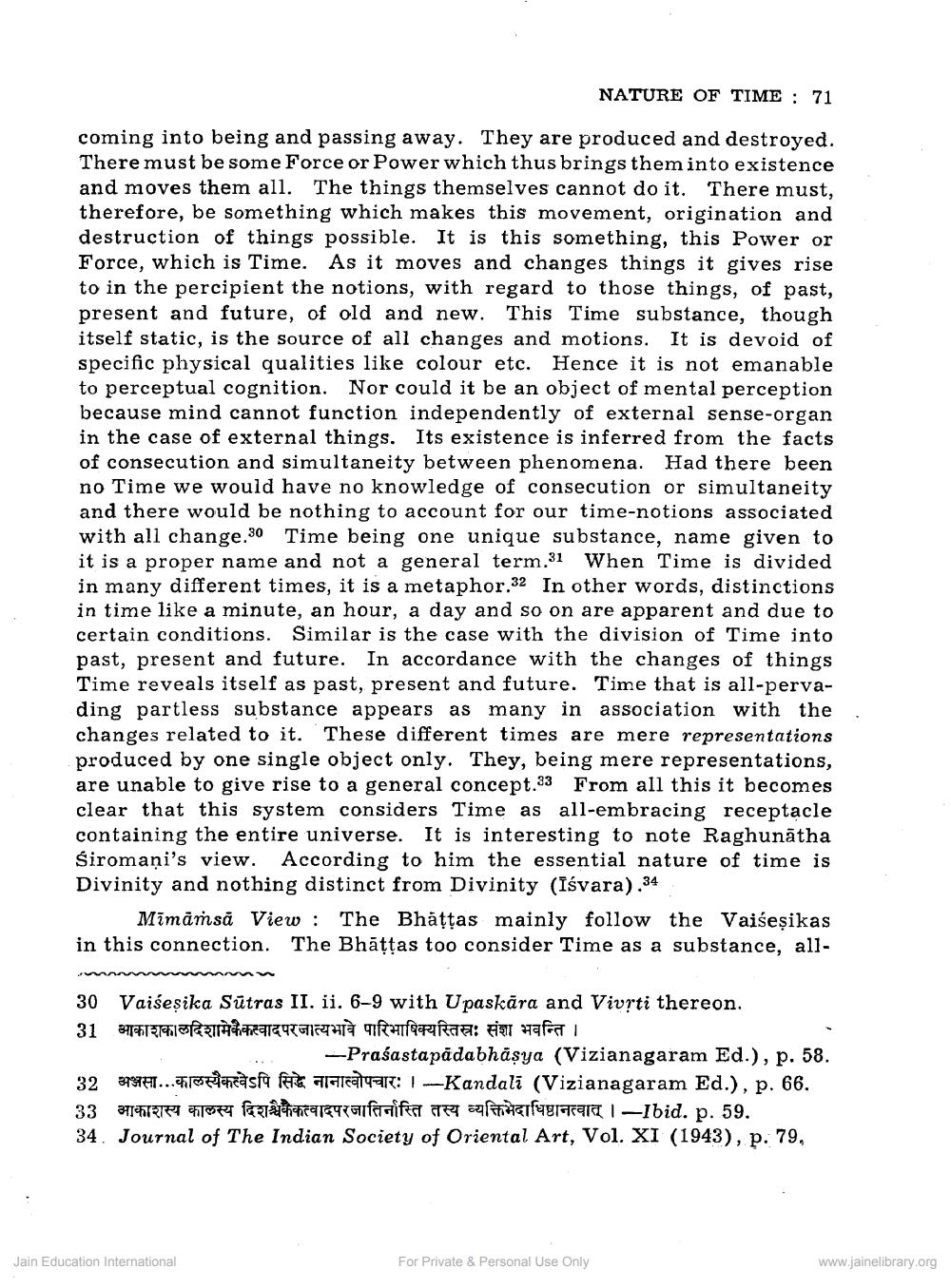Book Title: Nature of Time Author(s): Nagin J Shah Publisher: Z_Mahavir_Jain_Vidyalay_Suvarna_Mahotsav_Granth_Part_1_012002.pdf and Mahavir_Jain_Vidyalay_Suvarna_ View full book textPage 9
________________ NATURE OF TIME : 71 coming into being and passing away. They are produced and destroyed. There must be some Force or Power which thus brings them into existence and moves them all. The things themselves cannot do it. There must, therefore, be something which makes this movement, origination and destruction of things possible. It is this something, this Power or Force, which is Time. As it moves and changes things it gives rise to in the percipient the notions, with regard to those things, of past, present and future, of old and new. This Time substance, though itself static, is the source of all changes and motions. It is devoid of specific physical qualities like colour etc. Hence it is not emanable to perceptual cognition. Nor could it be an object of mental perception because mind cannot function independently of external sense-organ in the case of external things. Its existence is inferred from the facts of consecution and simultaneity between phenomena. Had there been no Time we would have no knowledge of consecution or simultaneity and there would be nothing to account for our time-notions associated with all change.30 Time being one unique substance, name given to it is a proper name and not a general term.31 When Time is divided in many different times, it is a metaphor.32 In other words, distinctions in time like a minute, an hour, a day and so on are apparent and due to certain conditions. Similar is the case with the division of Time into past, present and future. In accordance with the changes of things Time reveals itself as past, present and future. Time that is all-pervading partless substance appears as many in association with the changes related to it. These different times are mere representations produced by one single object only. They, being mere representations, are unable to give rise to a general concept.33 From all this it becomes clear that this system considers Time as all-embracing receptacle containing the entire universe. It is interesting to note Raghunatha Siromani's view. According to him the essential nature of time is Divinity and nothing distinct from Divinity (Isvara).34 Mīmāṁså View : The Bhățțas mainly follow the Vaišeşikas in this connection. The Bhāţtas too consider Time as a substance, all 30 Vaiseșika Sūtras II. ii. 6-9 with Upaskāra and Vivrti thereon. 31 आकाशकालदिशामेकैकस्वादपरजात्यभावे पारिभाषिक्यस्तिस्रः संज्ञा भवन्ति । --Prasastapädabhâsya (Vizianagaram Ed.), p. 58. 32 27327...peaasta tagatart: 1 --Kandali (Vizianagaram Ed.), p. 66. 33 Piet Files farah rakyaiffes qe sa titfugttrall I-Ibid. p. 59. 34. Journal of The Indian Society of Oriental Art, Vol. XI (1943), p. 79, Jain Education International For Private & Personal Use Only www.jainelibrary.orgPage Navigation
1 ... 7 8 9 10 11 12 13 14 15 16 17 18 19 20 21 22 23 24 25
